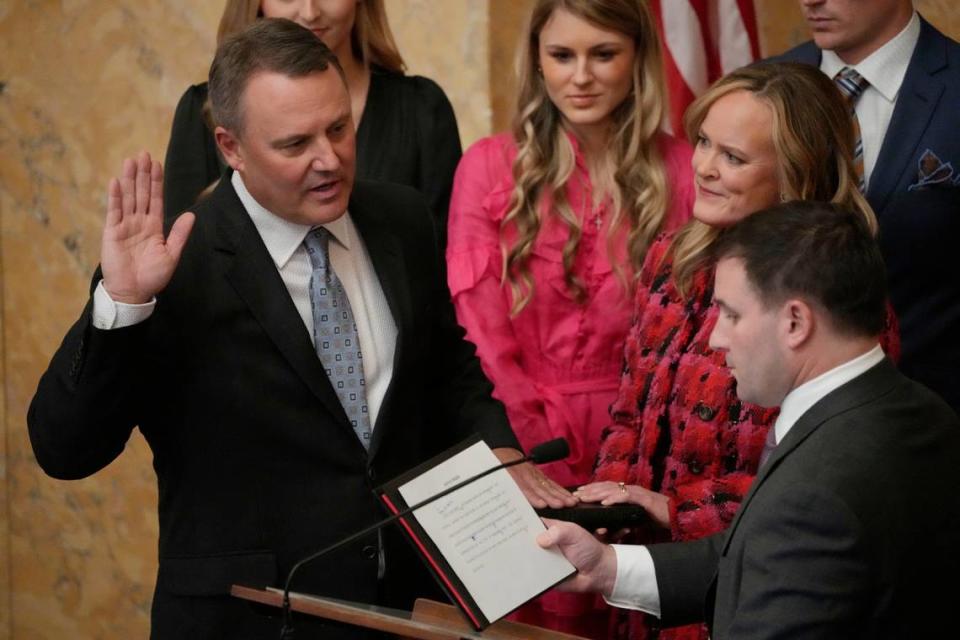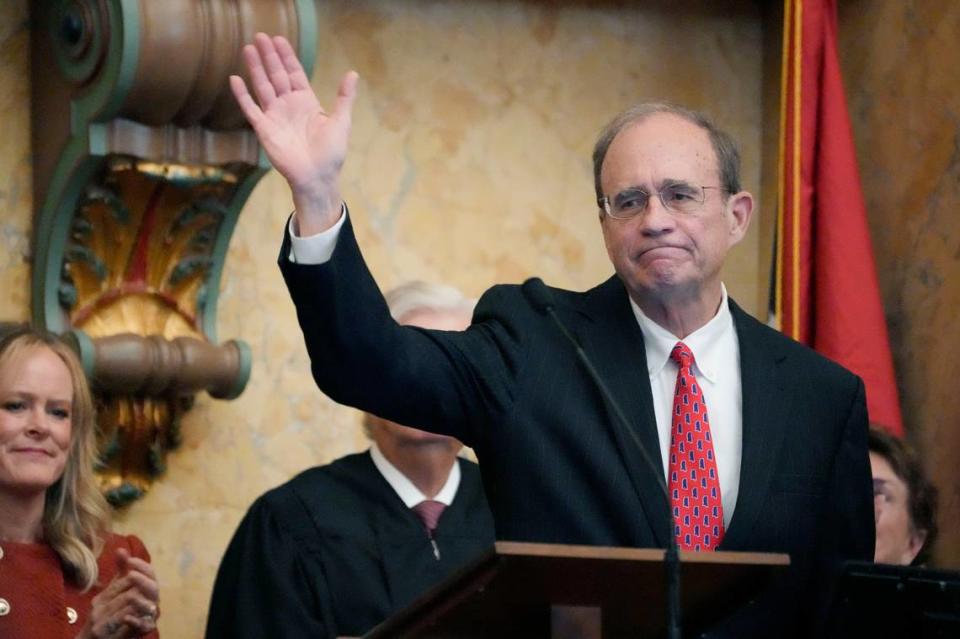With Tate Reeves’ victory, Medicaid expansion is off the table in Mississippi. Or is it?
- Oops!Something went wrong.Please try again later.
- Oops!Something went wrong.Please try again later.
- Oops!Something went wrong.Please try again later.
A time-honored political adage is that “elections have consequences.”
Tate Reeves was reelected governor in 2023 as a long-time opponent of Medicaid expansion. Hence, the consequence is that there is no likelihood that Medicaid will be expanded to provide health care coverage for primarily the working poor — an estimated 200,000 Mississippians.
Even with two-thirds super majorities of Reeves’ fellow Republicans in both the state House and Senate, Mississippi may be closer than the gubernatorial election results would indicate to joining the nation’s other 40 states that have expanded Medicaid.

For instance, new House Speaker Jason White, R-West, pronounced that expanding Medicaid would be on the table for discussion during his tenure. White made his comments even before he was selected as the unanimous pick of his fellow House Republicans to replace outgoing Speaker Philip Gunn, who like Reeves was staunchly anti-expansion. There is no reason to think Speaker White will not honor that commitment.
And over in the Senate, one of the worst-kept secrets in the Capitol for the past four years has been that its presiding officer Lt. Gov. Delbert Hosemann has believed that expanding Medicaid to provide health insurance for the working poor should at least be adequately studied. Hosemann knew with both Reeves and Gunn in opposition that any efforts to pass Medicaid expansion in the Senate would be futile. Gunn is gone.
During a recent appearance before the Mississippi State University Stennis Institute/Capitol Press Corps luncheon, Hosemann indicated that Medicaid expansion was still on his political radar.

First of all, Hosemann gave the indication that legislative leaders have discussed the issue before the 2024 session because he said, “he (White) is taking the lead on that.”
Hosemann added, “The state economist has said we actually make money (if Medicaid is expanded) and that has been bolstered by other states.” Studies by the University Research Center led by State Economist Corey Miller have indeed surmised that expanding Medicaid and receiving more than $1 billion annually in federal funds would grow the state economy and revenues.
Hosemann explained that seven of the last eight states that expanded Medicaid did so through a ballot initiative where citizens gathered enough signatures to bypass their legislators and place Medicaid expansion on the ballot. He said all but one of those states where the citizens voted to expand Medicaid were “red” or Republican states.
“I think people are willing to accept some assistance in making sure that working people have access to health care and they are willing to do so particularly if it is a neutral economic event,” Hosemann said. Multiple polls in Mississippi have supported Hosemann’s conclusion.
In the 2023 legislative session, Mississippi Today asked legislators their position on Medicaid expansion. The survey indicated that the opposition to Medicaid expansion was surprisingly limited in the Legislature.
Just 21 of last year’s House members surveyed, or 18% of the House, said they opposed Medicaid expansion. And 18 of last year’s Senate members surveyed, or 38% of the Senate, said they opposed it.
In the House, 67 members — a voting majority — said they either supported Medicaid expansion or were undecided. Mississippi Today could not get answers from 32 representatives.
And in the Senate, 25 members — one vote shy of a voting majority — said they either supported Medicaid expansion or were undecided. Answers could not be obtained from nine senators.

There is precedent for Reeves making a quick reversal on a position he staked out in a campaign. One has to look no further than when he was first elected governor in 2019.
During that campaign, Reeves consistently stated that he would not support legislation that removed the divisive Confederate battle emblem from the state flag. He said that should be left up to the voters.
But in the 2020 session, which was extended because of the COVID-19 pandemic, momentum began to emerge in the House to change the flag. For days, most people thought that momentum would eventually fade away, especially since at that point in the legislative process it required a near-impossible to obtain two-thirds majority in each chamber to change the flag. But the House effort grew, even though Reeves reiterated that he opposed the Legislature changing the flag without a vote of the people.
As the legislative vote neared and it became apparent that the vote to change the flag was going to pass — by the two-thirds legislative majority needed to override a governor’s veto — Reeves acquiesced and said he would sign the legislation.
No doubt, Reeves would say now there is no way he would sign legislation expanding Medicaid.
But at this point in the process four years ago, he would have said the same about legislation to change the state flag.
This analysis was produced by Mississippi Today, a nonprofit news organization that covers state government, public policy, politics and culture. Bobby Harrison is Mississippi Today’s senior Capitol reporter.

